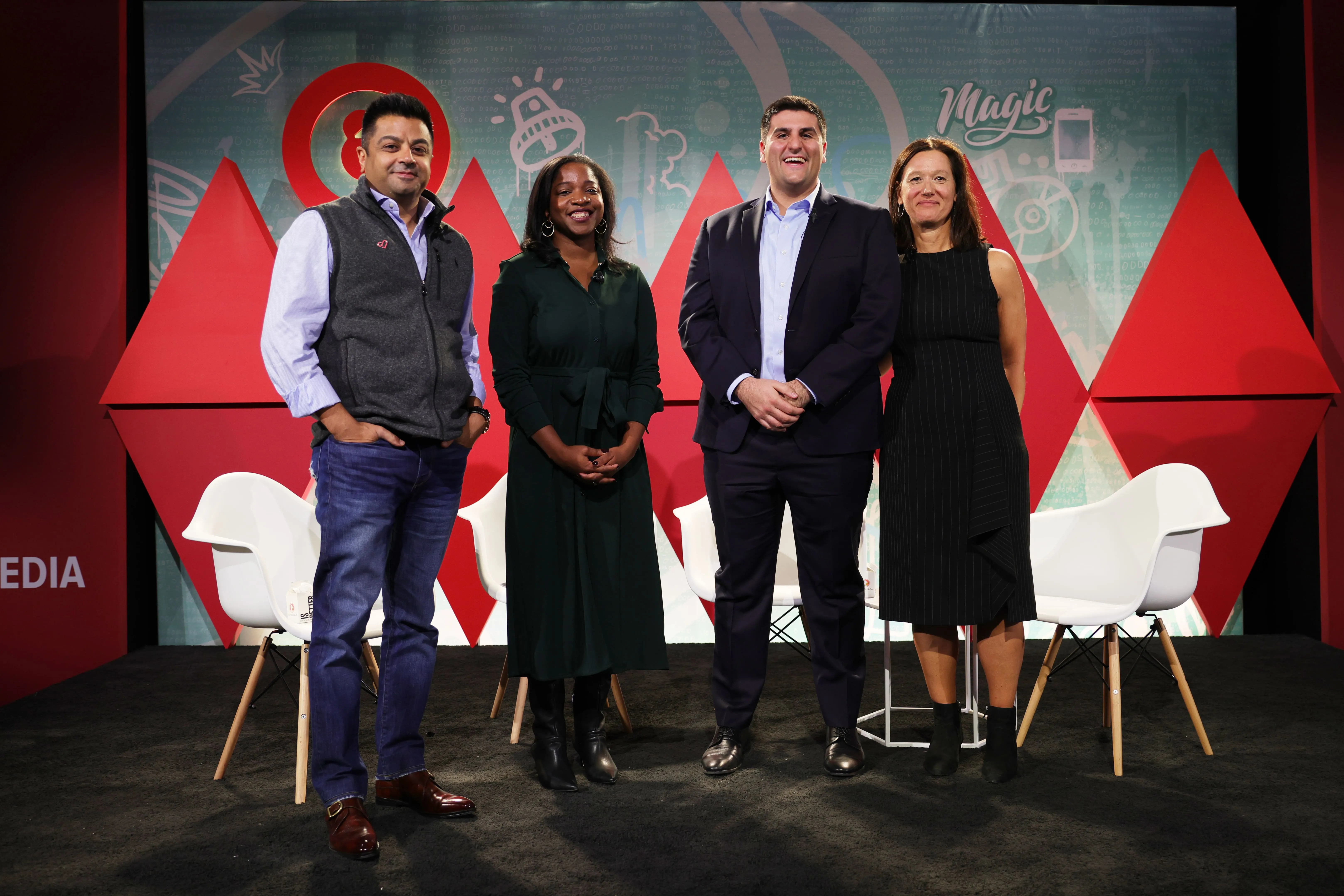“$9 billion in advertising spend.”
“You can’t be an informed advertiser today without being aware of what’s going on in the political media ecosystem.”
“With the dichotomy today between social and political issues, brands have more to navigate than ever before.”
We know, you’ve been hearing a lot from us lately about the political media ecosystem, and the intersection of brand, advocacy, and political advertising. We kicked the conversation up a notch at last week’s industry event of the season, Advertising Week New York, where we led a panel of brilliant experts and thought leaders to discuss why every brand needs a dose of political know-how today.
Assembly was represented by our Director of Political Strategy, Tyler Goldberg, along with our President of North America, Valerie Davis. Heather Foster, Lyft’s Global Head of Government Affairs joined us – making a great addition to the panel, with Lyft as a well-known name within the advocacy arena and Heather as an active contributor to their impact and community efforts (and former Obama administration strategist!). We also rounded out the panel with Ashwin Navin, Samba TV’s CEO and Co-founder, who added his data-backed knowledge of how viewing and ad consumption behaviors have changed as they relate to the political season.
If you missed it, don’t worry! We’re recapping a few of the most important takeaways from the discussion here:
Don’t be performative in your advocacy work.
Advocacy…a relatively new space for some brands, while others have been investing in this space in varying forms for some time. Lately, we’ve seen brands invest huge amounts of money into their advocacy programs – some have even built out specialized advocacy departments. While this progress is promising, it takes a huge commitment to ensure these types of programs don’t lean towards being tokenistic…or performative.
What brands should know? Lean into advocacy work and back it up with action to ensure the work is as impactful as it can be. Investing in the right strategy that ties back to your brand and business, and can actually make an impact, is going to land much better in the long run than doing some good will just for PR’s sake.
Hear it from Lyft: ‘There are a range of issues we could speak on as an organization – immigration, LGBTQ+ rights, transportation, economic mobility, racial equity - we could speak out on everything, but we also have an opportunity to actually make an impact. And what we really value is being in communities. We knew there was a way to provide a service connected to the issue that we decided to speak out on. And we began to think about it in that way moving forward –how can we impact this issue through transportation? You’ve seen that through some of the things we’ve done as a company whether it’s connected to reproductive rights or voting and vaccine access.’
Embed your advocacy work in communities.
Consumers and businesses alike have seen the resurgence of the importance of investing in their local communities, whether that be through supporting local businesses or spending time within the communities to really help solve the root of problems.
What should brands know? Brands big and small can practice community building and it’s important now more than ever to build equity through engagement with the people who are actually using their product. Having ‘boots on the ground’ is going to help brands resonate with the issues that different markets are seeing and furthermore, help solve those issues in an impactful way.
Hear it from Lyft: ‘Communities in the areas we operate are aware of the issues we’re advocating for. It’s our job to talk to the local elected officials and partner with them to help solve some of the issues that are happening in those communities. We also narrowed in on our customers and drivers - who are using our platform every day – to see what issues they care about and how we can respond to those issues.’
We live in a busy world, take the time to listen to what your audience is asking for.
The best brands are the ones who are flexible – who listen and adapt to what their consumers want and need. It’s just as important to gauge community needs as it is to stay up on hot button issues so brands can pivot and evolve their strategies for implementing the best impact.
What should brands know? Consumers have turned their attention to brands to help them advocate for the issues they’re passionate about – listen to what they’re saying. So often, we get caught up in reacting that we forget to take a step back and listen.
Hear it from Lyft: 'You need to listen to what’s going on if you’re going to tell your story. Be aware of who you’re talking to, who your audience is, and what’s going to resonate with them.’
